Turkey earthquake: Communities work together to donate aid
- Published
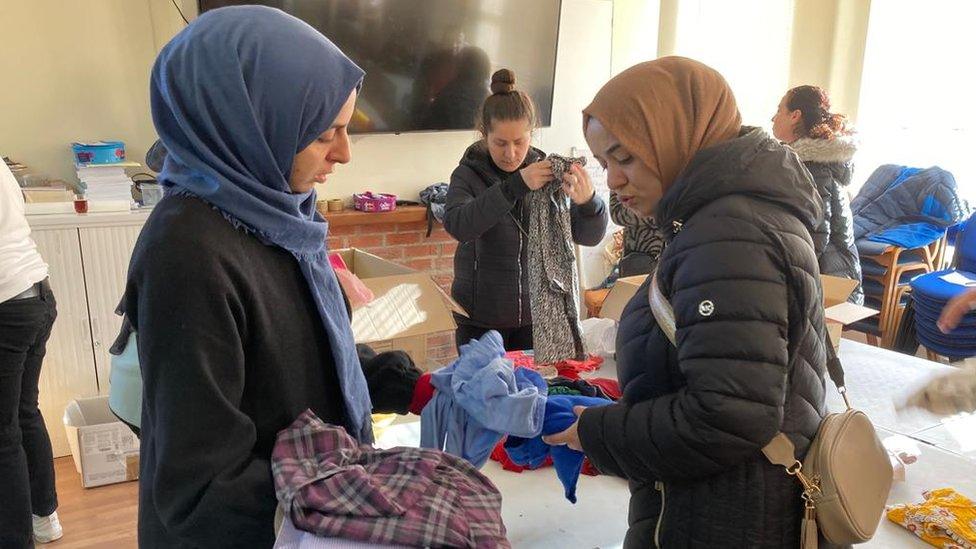
People in Wiltshire have donated clothes and supplies
Communities have been pulling together to organise aid for victims of the "devastating" Turkey-Syria earthquake.
People across west England have set up collections for food, warm clothing and put out a call for volunteers to help with on-the-ground efforts.
Collection points at the Wiltshire Turkish Community Centre have been filling up fast and families in Bristol have been contacting relatives.
Bath rescuer Rob Davis said the impact had been like 2010's Haiti earthquake.
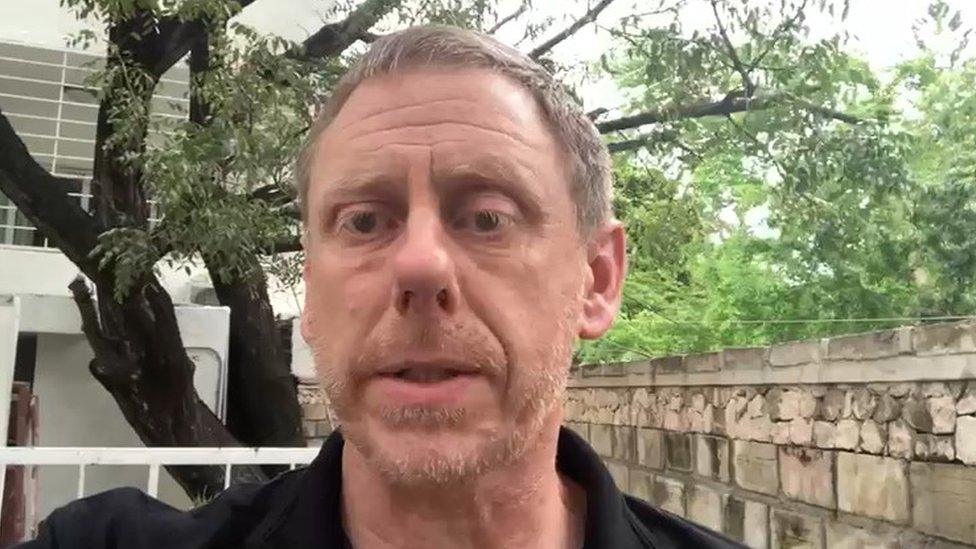
Rob Davis and his team spent 10 days in Haiti in 2010 assessing whether buildings were safe to use
"Heavy reinforced concrete buildings have been destroyed across the area," Mr Davis, a Search And Rescue Resistance In Disaster (SARAID) worker, said.
"The added complication is that it happened when people were in bed so their reaction time was much slower.
"It's devastating. It's our job now to go and locate those people who are trapped."
Students members of University of Bristol's Arab and Turkish societies have organised a joint fundraiser after having friends and family caught up in the earthquake.
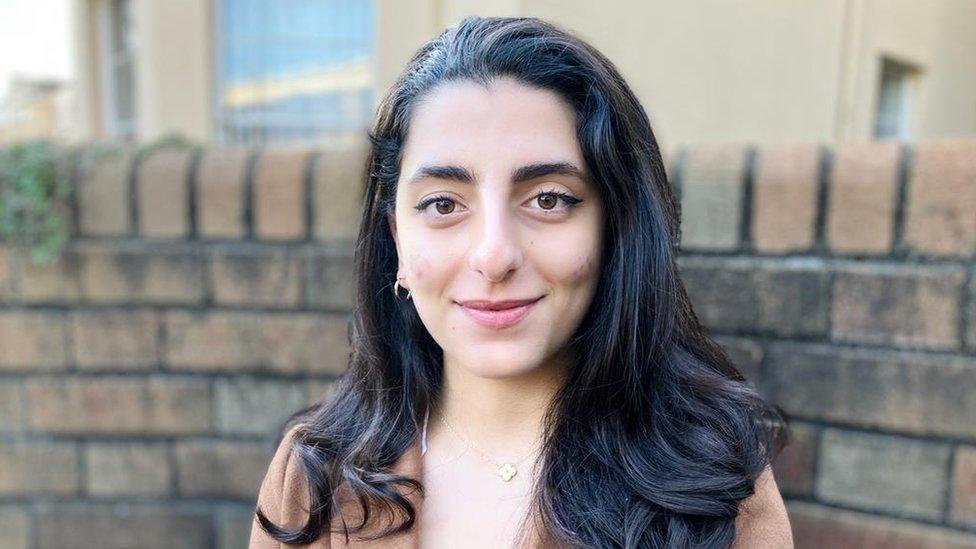
Shaden Kazemi said it difficult to be so far away and help
Shaden Kazemi, president of the Turkish society at University of Bristol said: "We have a fundraiser next week, collecting money and we're doing a bake sale with the British Red Cross.
"Hopefully we can raise up to £500 and that will be donated to both Turkey and Syria."
Tugba Aydin, a member of the Turkish Society, said her family have moved to the countryside but are too scared to sleep inside a building due to aftershocks.
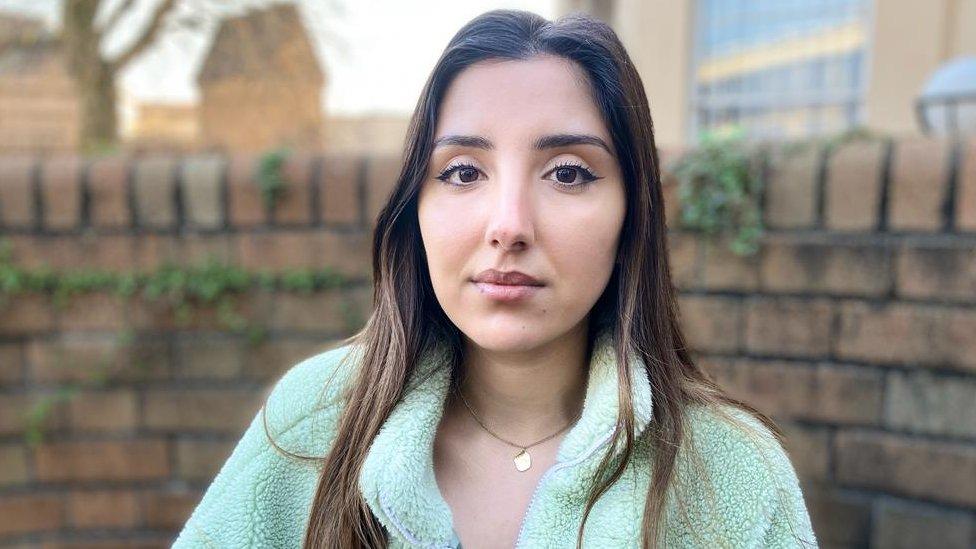
Tugba Aydin, a student at the University of Bristol said many places needed help with search and rescue
Ms Aydin said: "The difficulty is the road blockages, that means an aid truck can't go through, it has to go through affected areas.
"The important thing is for people to package clothes properly so it can get there as quick as possible."
Moe Alsayed, member of University of Bristol's Arab Society added: "I have got a lot of distant relatives who have actually passed away because of the earthquake and others who have left their homes because its not safe to leave their homes."
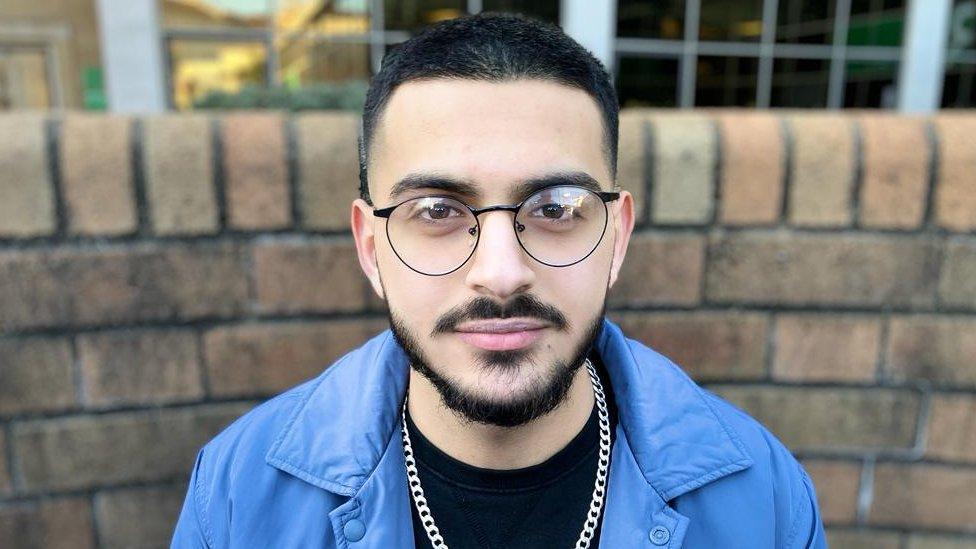
Moe Alsayed is a student member of the Arab Society
He added it was "really painful to not even communicate" with family members in Syria because the war and earthquake had damaged communication lines.
Mehmet Guvercin, chair of Turkish Wiltshire Community (TWC), said: "Most of the Turkish and Kurdish community here have friends or family who have been directly affected.
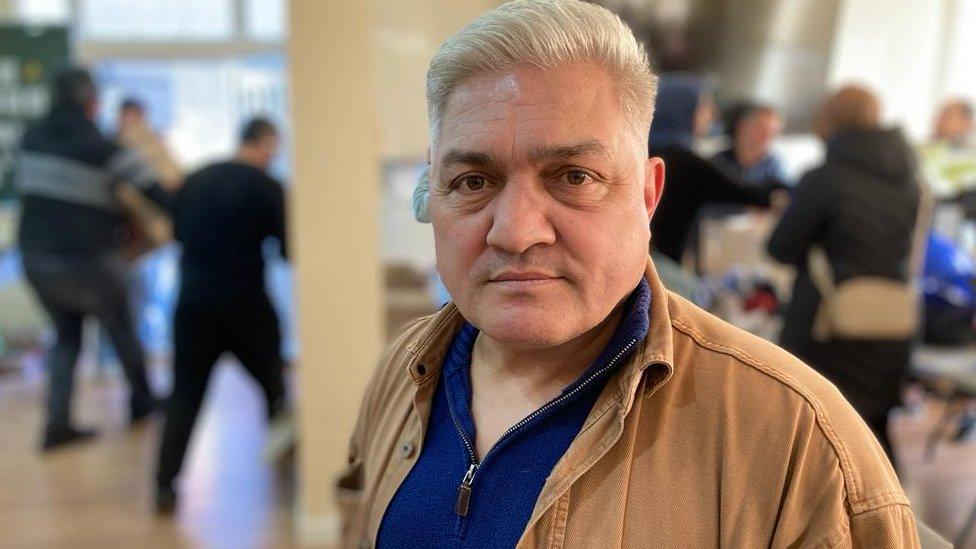
Mehmet Guvercin said some of his friends died in the earthquake
He added: "A couple of friends of mine have been confirmed dead, another friend of mine lost his wife, mother and two sisters.
"Over the next few days we will know more on what has happened to other people."
Tugba Aliya Altun, also of TWC, said: "We have packed everything from baby food, to nappies and adults' clothing, everything.
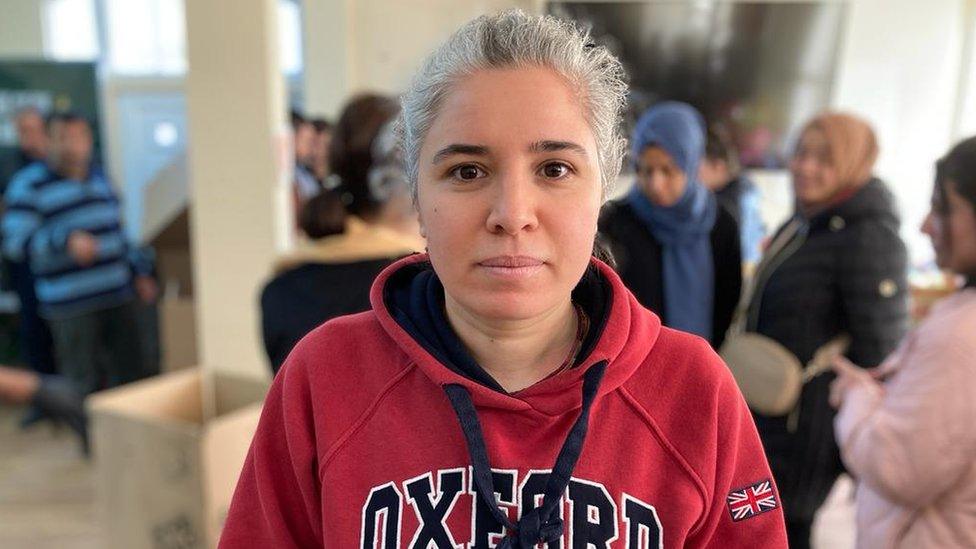
Tugba Aliya Altun said her community was helping in any way it can
She continued: "I'm feeling wrecked but this is easing my pain just a little because I know I'm helping."
Henry Aslan, from Bristol, said that when he heard news of the quake he immediately called his family, who live in northern Istanbul.
"They didn't feel anything but the east side is terrible," he said.
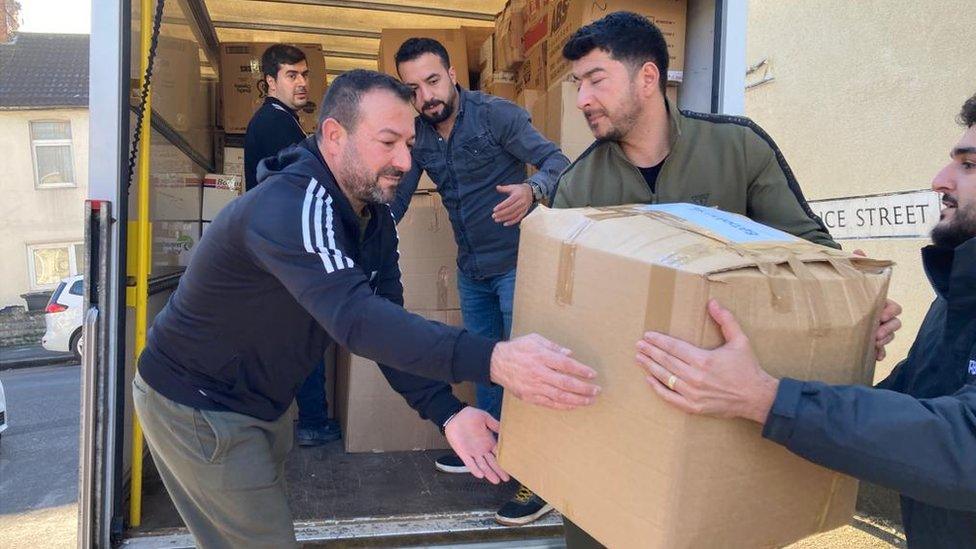
Volunteers from the Wiltshire Turkish Community Centre have been filling vans with supplies destined for Turkey
He added: "To the people who have lost their families, I'm so sorry.
"My brother is in Turkey and he has got trucks. This morning I told him, fill up your truck, get food and drive it to the east side."
'People are scared'
International operations manager for Wiltshire-based charity Re:Act Disaster Response, Paul Taylor said his teams were set to arrive in Turkey on Wednesday morning.
"The first thing that we can do is ascertain the needs of the affected population," he said.
"It is likely to be in these early stages, medical support, water and critically because of the temperatures, shelter.
"People are scared. Psychologically it can be very demanding.
"The first phase is a search and rescue phase. On the back of that, they will then address humanitarian needs."

Follow BBC West on Facebook, external, Twitter, external and Instagram, external. Send your story ideas to: bristol@bbc.co.uk
Related topics
- Published7 February 2023
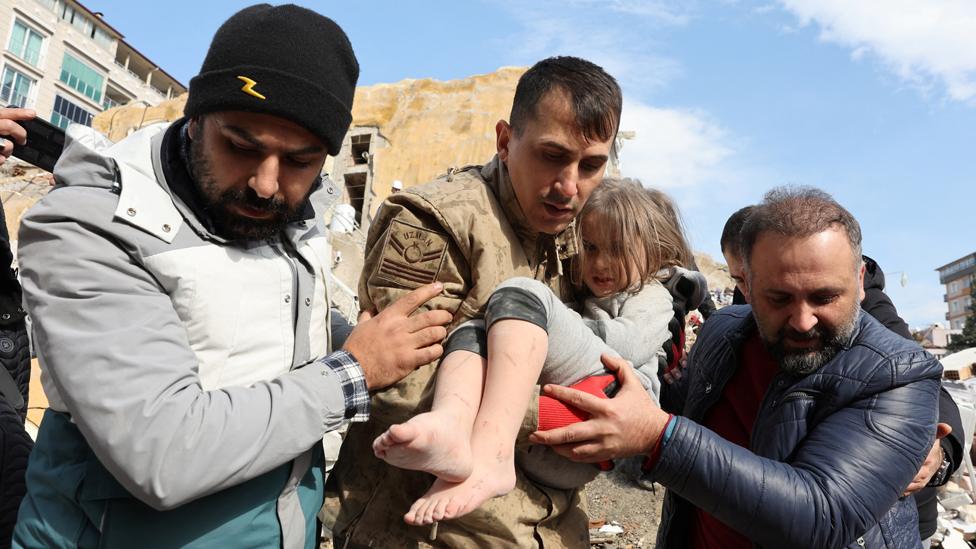
- Published30 August 2021
